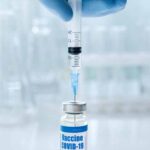Therapies
This changing variant landscape has dramatically altered treatment options for patients with acute SARS-CoV-2. “Nearly 90% of the circulating variants are resistant to available monoclonal therapies,” says Dr. Kim.
In 2022, the U.S. Food & Drug Administration (FDA) rescinded the use of four different monoclonal antibody products due to their ineffectiveness against commonly circulating variants: sotrovimab (Xevudy), bamlanivimab plus etesevimab, casirivimab plus imdevimab (REGEN-COV) and bebtelovimab. In January 2023 the FDA also rescinded the monoclonal product tixagevimab plus cilgavimab (Evusheld).
Many rheumatologists had been using Evusheld to provide pre-exposure prophylaxis for several months, particularly to more immunosuppressed patients. “Given that there’s no way to really prophylax people now, you’re left with making sure they’re up to date on the vaccine and treating them with anti-virals as soon as possible,” says Dr. Winthrop.
He employs nirmatrelvir packaged with ritonavir (Paxlovid) for most of his patients, noting molnupiravir is less effective, although he has used it in a handful of patients taking medications with severe drug–drug interactions with Paxlovid.
“I recommend anti-virals to everyone,” says Dr. Kim, “largely because the [Emergency Use Authorization] allows me to do that, and early data suggest that anti-virals do help reduce the chances of poor outcomes in immunosuppressed patients. Definitely for people who are doing poorly in the short term, we get it out to them as fast as we can.” He sometimes prescribes consecutive courses of Paxlovid to treat the rebound infections that can occur with it, “although we don’t have solid data about the benefits of this approach.”
Diversity & Equity Issues
The pandemic brought to light many preexisting health disparities. After making age-related statistical adjustments, Black, Hispanic and Indigenous Americans all have a higher risk of severe COVID-19 and mortality than white people in the U.S.6 The pandemic reduced life expectancy by more than two years for Black individuals in the U.S., obliterating—at least temporarily—the decade of process in narrowing the life expectancy gap between Black and white individuals.7
These minorities are about twice as likely to die from COVID-19 as white people of the same age. In terms of severe COVID-19 and mortality, these disparities have fluctuated over the course of the pandemic, with generally wider margins at times when the virus has surged.6
Although the reasons for these differences in health outcomes are complex, social determinants of health, including reduced access to social services and quality healthcare, socioeconomic factors, environmental factors influencing health behaviors, stressors and increased preexisting comorbidities may all play a role. Although COVID-19 highlighted these differences, these factors hugely influence outcomes across many disease categories.




